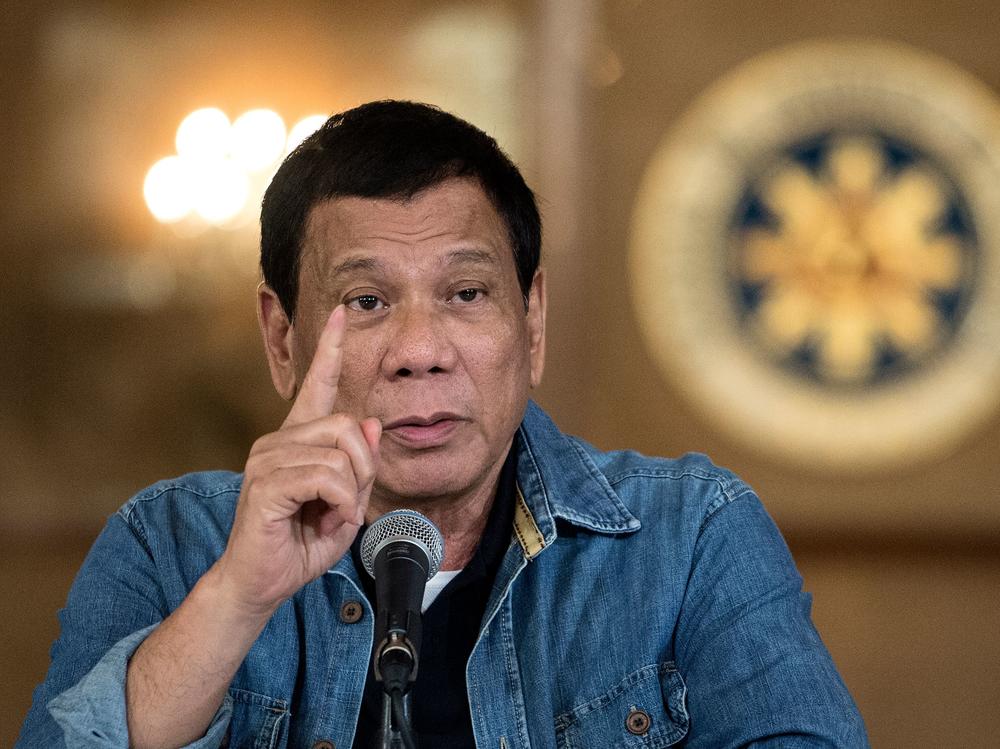Section Branding
Header Content
International Criminal Court Backs Probe Of Duterte's War On Drugs In The Philippines
Primary Content
The International Criminal Court has authorized a formal investigation into the controversial anti-drug war of the Philippines that has drawn international outrage.
By official count, at least 6,000 Filipinos, mostly poor drug peddlers and addicts, have been killed in the anti-drug police operations. But rights groups estimate the number of victims could be four times that.
The ICC's move Wednesday represents a dramatic turn for Philippine President Rodrigo Duterte, the architect of the bloody crackdown. Investigators will focus on the period from 2016, when he took office, through March 2019, after which the Philippines was deemed to have withdrawn from the ICC in a bid to avert its jurisdiction.
Prosecutors will also examine the anti-drug campaign Duterte waged as mayor of Davao City between 2011 and 2016.
Diane Orentlicher, an American University international law professor, says broadening the timeframe of the investigation helps establish that the national drug war was a continuation of the aggressive approach first deployed in Davao City.
The 76-year-old Duterte has scorned the court's prosecution team from the time it first began considering a possible investigation.
But on Wednesday the Pre-Trial chamber said that based on what has emerged, the Philippines' anti-drug campaign "cannot be seen as a legitimate law enforcement operation" nor the killings as "mere excesses in an otherwise legitimate operation." Rather, it said they indicate a "widespread and systematic attack against the civilian population."
Duterte accuses the ICC of meddling in the internal affairs of the Philippines and he has vowed to bar investigators from entering the country.
However, court watchers say it's not unusual for justice before the ICC to take years. And Duterte's term expires in June 2022, in less than nine months. Analysts say he is focused now on finding a successor who could possibly protect him from prosecution.
Copyright 2021 NPR. To see more, visit https://www.npr.org.

